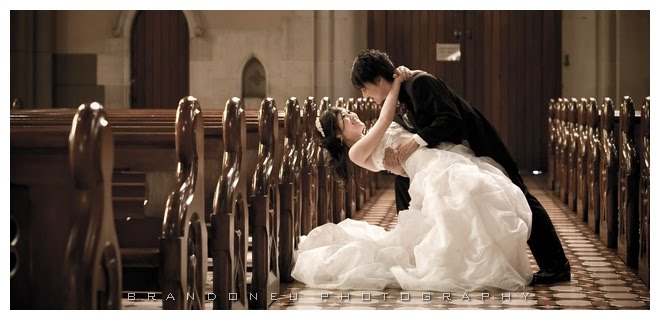Note - images were shot using medium sized straight out of camera JPEGs on my Nikon D3, with sharpening set to +6, AWB, D-lighting off.
I use a 50mm and a 24mm prime for my wedding assignments, but at times I feel the 24mm is a little too wide, while the 50mm is a little too tight while shooting at close quarters. I then began looking for a 35mm prime. Nikon gives us several options, which I shall list here:
Nikon 35mm f/2 D - A film-era lens that has been around for some time. Its plastic build quality is pretty good, similar to other primes. Although central sharpness is good at f2, the corners are crap (as I've seen from lens review sites). Its a bargain lens priced around RM 1.1k. Its bokeh is also not very impressive.
Nikon 35mm f/1.4 AI-s - A manual focus lens with impeccable build quality. Its quite blurry when used wide open, especially at the corners. Approx RM 1.8k
NAikon 35mm f/1.4G AF-S - Nikon's sharpest 35mm lens ever, as stated by Ken Rockwell. Of course with Nikon's latest lens incarnations, it has a high asking price of at least RM 5k.
Enter the RM 800 Nikon 35mm f/1.8G DX. I never expected this 35mm to perform on an FX sensor, albeit with several caveats that I shall explain later. Yeah, I know I'm a late comer to the game, or I'm pretty uninformed :s
The Nikon 35mm f/1.8G comes in a 'gold' coloured box relatively twice its height (which makes you think the lens should be pretty large, at least to me at least. Included inside the box is a 1 year international warranty slip, instruction manual, lens hood and lens case.
Note: Even with the decrease in sensor resolution to 6MP, the images are still perfectly usable if the client just wants to print out 4R sized pictures, or upload them to facebook!
At f/4.5, the vignetting is less severe with a natural looking vignette. That's one less step in lightroom or photoshop to follow through. Pretty cool eh ? :)
f/7.1, 1/125 s, ISO 200
My version of the blank brick wall. The barrel distortion here is quite noticeable, but it shouldn't bother those who regularly shoot landscapes, street shots or portraiture.
Shooting towards the sun at f/7.1, 1/640, ISO 200. It produces a nice rainbow coloured lens flare which I like.
The 35 DX is not a macro lens with its 0.3m minimum focus distance. Hence its maximum reproduction ratio is 1:6.1x
If you've taken a closer look at the previous image, the vignettes are almost gone. For best results, this lens is meant to be used wide open at f/1.8, with vignetting control set to 'high'.
If your picture isn't too underexposed, the vignetting at f/1.8 is quite pleasing.
Even if Nikon meant this to be a DX lens, its performance at the FX sensor edge is pretty impressive. On my computer screen I can clearly see the serial number for the Manfrotto tripod ballhead on the left is C17649.
Individual light sources are rendered as spherical out of focus highlights.
Its not very wise to stick the lens right into your subject's face if your prefer not to make their faces too wide.



























3 Comments:
As I understand your writings:
"So on with the tests! I mounted the 35/1.8 DX on my D3 and did some test shots. At f/7.1, 1/125 s, ISO 200, the vignetting is pretty severe. There's absolutely nothing you can do about it, unless you use the FX sensor with a 5:4 or 3:2 (DX) crop mode."
..then the shots are "normally" D3-shots - it would have been very interesting seeing 5:4 shots ?
Hm, now I`m thinking about selling 2.0D and get this instead. Thanks for such a good review!
Thanks for review, it was excellent and very informative.
good picture, and amazing bokeh
thank you :)
Post a Comment